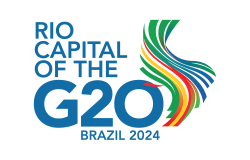G20 Wealth Inequality: Action or Apathy?

The G20 has the ability to influence the activities of the world’s largest and leading economies through its unique membership which represents 85% of global GDP, 75% of world trade, and 67% of the global population. It is thus uniquely positioned to tackle wealth inequality and to mobilise coordinated international action by encouraging member states to collaborate, mirror policies, share best practices, and implement reforms that smaller forums or individual countries can not achieve independently. This is particularly important because wealth inequality poses a significant threat to global stability and social cohesion.
However, the G20’s effectiveness in addressing major social issues like wealth inequality can be limited. Diverging national interests among member states often hinder consensus, slowing the implementation of coordinated actions. Additionally, the G20 lacks binding enforcement mechanisms, making it reliant on voluntary commitments that are not always fulfilled. This dynamic, along with the informal nature of the G20, can result in ambitious declarations that fail to translate into concrete outcomes, particularly in areas where political will is uneven or where economic policies are deeply entrenched in domestic priorities. To overcome these limitations, the G20 must prioritise sustained collaboration and adopt a unified multilateral approach, enabling it to effectively tackle the global challenge of wealth inequality and foster long-term economic stability.
Watch the introduction video and download the full brief below.


